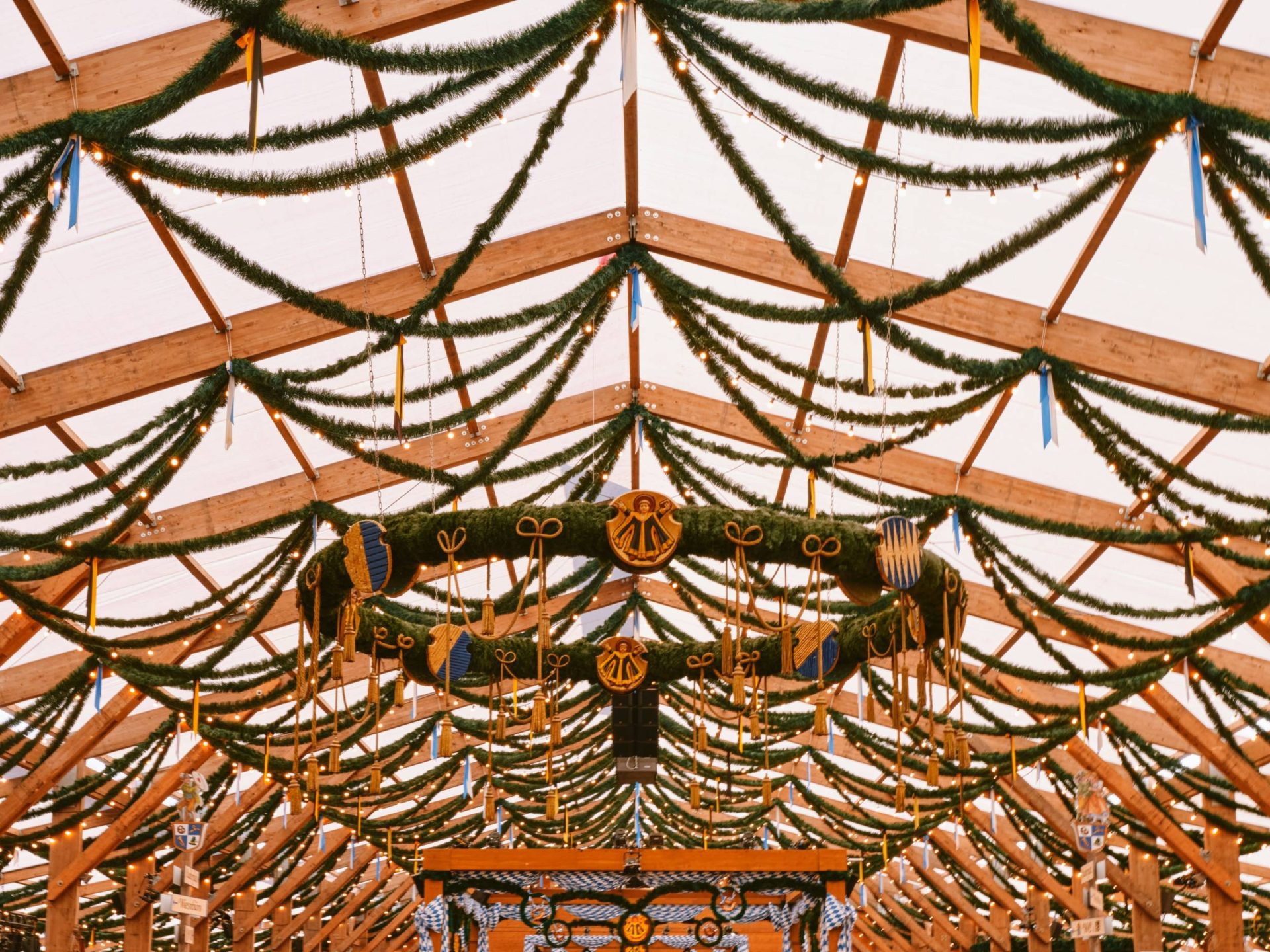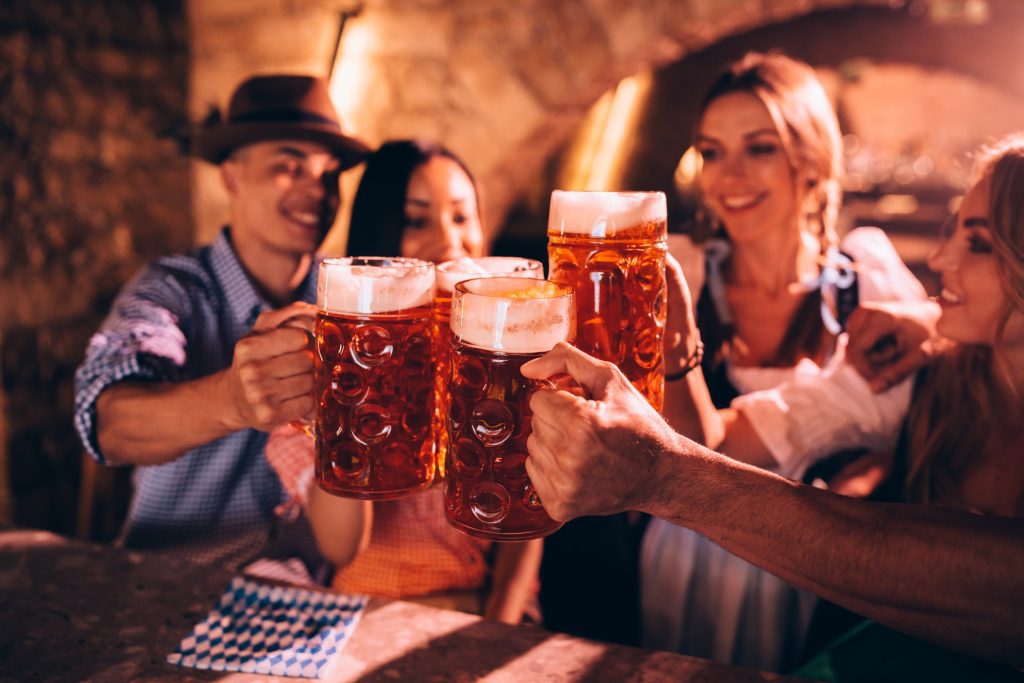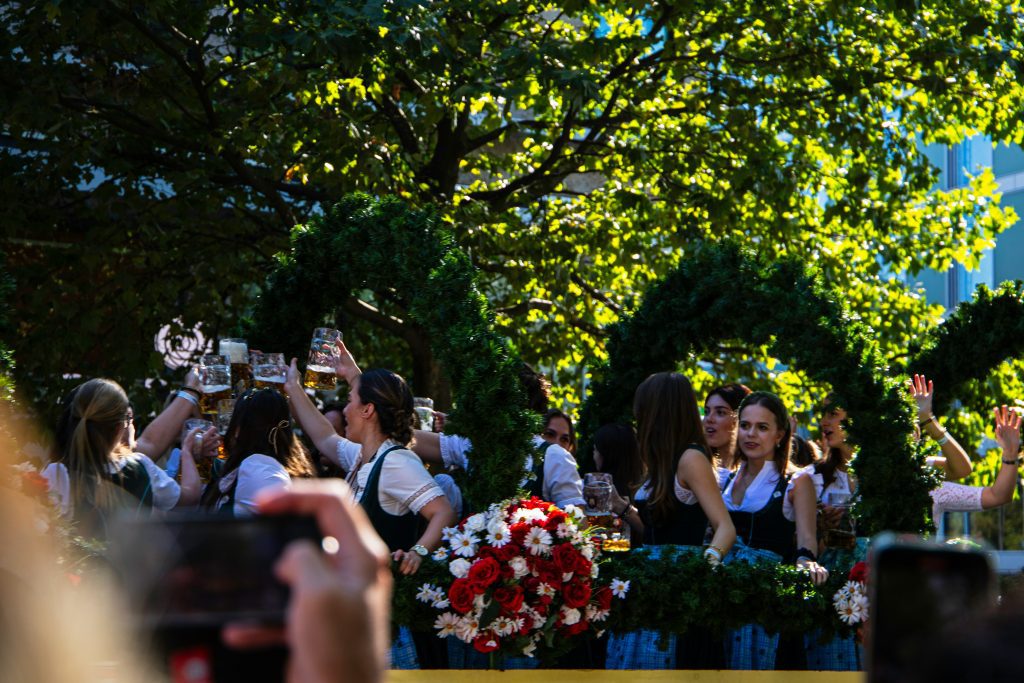Here are some facts about Munich: it’s a fantastic destination year-round, but have you ever considered visiting during Oktoberfest? This world-famous festival transforms the city into a hub of Bavarian culture, making it the perfect time to experience Munich’s rich traditions and festive atmosphere.
Ready to discover some fascinating facts about this incredible event?
Keep reading to find out more!

A glimpse into Oktoberfest history 
Oktoberfest has been a Munich tradition since 1810, but did you know that it was originally alcohol-free? In its early years, beer was only sold outside the festival grounds. However, it didn’t take long for the organizers and the city of Munich to realize that Oktoberfest without beer just wouldn’t be the same. Eventually, the sale of alcohol was allowed, and Oktoberfest as we know it today began to take shape. If you’re curious to dive deeper into Oktoberfest’s evolution, don’t miss our article on Munich Oktoberfest 2024 – O’zapft is! for even more insights.
Oktoberfest and famous faces 
One of the lesser-known Oktoberfest facts is that Albert Einstein once worked there! In 1896, before he became the renowned physicist, Einstein helped set up the Schottenhammel tent, one of the oldest beer tents at the festival.

Munich’s mayoral tradition 
The official start of Oktoberfest in Germany is marked by the mayor of Munich tapping the first keg and proclaiming, “O’zapft is!”—which means “It’s tapped!” The record for the fewest taps needed to open the keg is two, held by former mayor Christian Ude. On the other hand, Thomas Wimmer holds the record for the most taps required—19 in total—back in 1950.
The quest for souvenirs 
Munich beer brands are well-known worldwide, and their mugs have become coveted souvenirs. Every year, guests try to sneak these iconic mugs out of the tents. In 2010 alone, festival staff confiscated 130,000 beer mugs from would-be souvenir hunters! Want more fun facts like this one? Check out our blog post on Fun Facts about Oktoberfest You Never Knew!.

The strength of Oktoberfest waiters 
The waiters at Oktoberfest have one of the toughest jobs around. Serving thousands of guests each day, they carry heavy beer mugs nonstop. The world record for the most mugs carried at once belongs to Oliver Strümpfel from Abensberg, who in 2013 managed to haul 24 full beer mugs over a distance of 40 meters!
Traditional costumes with a twist 
Oktoberfest is synonymous with traditional Bavarian attire like Lederhosen and Dirndls, but one visitor took his outfit to another level. Playing it safe in his own way, he showed up wearing a bulletproof vest, handcuffs, and shin guards!
The long wait to host 
If you’ve ever dreamed of hosting your own beer tent at Oktoberfest, be prepared for a long wait. The waiting list to become a tent owner can be up to 20 years long!
A song from afar 
The famous Oktoberfest anthem, “Ein Prosit der Gemütlichkeit,” is sung countless times during the festival. Surprisingly, it’s not originally Bavarian—it was composed by Bernhard Dittrich from Chemnitz.

The Wiesn taxi 
The so-called “Wiesn taxi” might sound like a convenient way to get home, but it’s actually a nickname for the Red Cross wheelbarrow used to transport injured or intoxicated festival-goers. This “taxi” sees plenty of action throughout the event!
A holy celebration 
You might not associate Oktoberfest with church, but every year on the first Thursday of the festival, a special church service is held in the Hippodrome tent. It’s a unique blend of Bavarian culture and tradition.
Bright lights, big energy 
Oktoberfest shines brightly every year, but it comes at an energy cost. The festival consumes a staggering 2.7 million kilowatt hours of electricity—enough to power more than 1,000 households for an entire year!
Munich is a city of rich history and vibrant traditions, and Oktoberfest is the perfect time to experience it all. So why not plan your visit to coincide with this incredible festival? You’ll get a taste of Munich’s beer culture, witness some amazing Oktoberfest facts firsthand, and create memories to last a lifetime.
Fascinating Facts About Munich and Oktoberfest: FAQs
Are you planning to dive into the excitement of Oktoberfest in Munich?
Where to stay in Munich for Oktoberfest
Ensure you have the perfect place to stay by booking one of our two MEININGER Hotels, both offering prime locations with easy access to the festival.

MEININGER Hotel München Zentrum is just steps away from Theresienwiese, the heart of Oktoberfest.
Staying here means you’ll be able to immerse yourself in the festivities and then stroll back to your comfortable room whenever you’re ready for a break.
Address: Landsberger Str. 20b, 80339 Munich, Germany
For a more relaxed atmosphere with convenient transport links to the festival, consider MEININGER Hotel München Olympiapark.
It’s the perfect spot to enjoy all the fun of Oktoberfest while having a peaceful retreat to unwind at the end of the day.
Address: Landshuter Allee 174, 80637 Munich, Germany
No matter which hotel you choose, MEININGER ensures you’re never far from the Oktoberfest action while also providing a cozy spot to recharge after a day of Bavarian fun!





